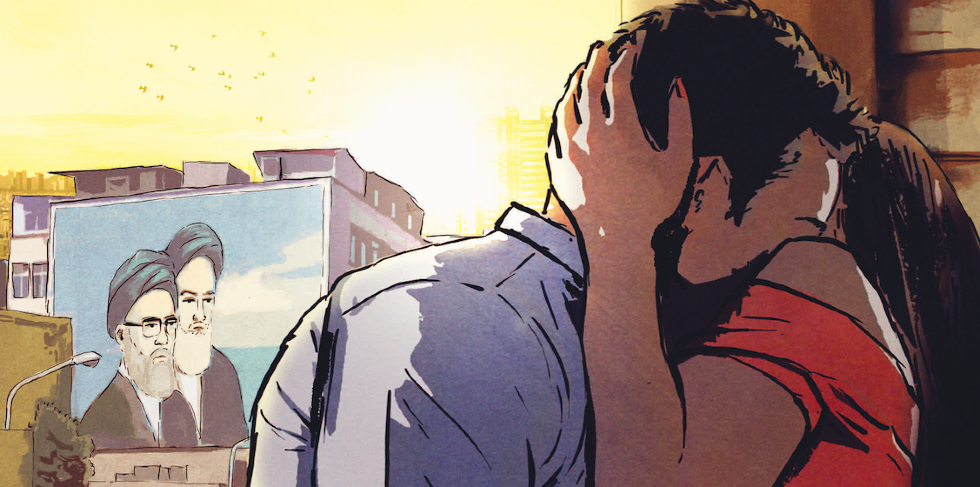End of the World Film Club #4: Tehran Taboo

“Saying ‘no’ is more important than breathing in Tehran.” Join us for our next End of the World Film Club, in which we turn our attention to first time director Ali Soozandeh’s Tehran Taboo…
The lockdown – in name at least (stay safe, kids) – continues. At the very least, we won’t be going to the cinema anytime soon – one of the non-essential but essential-feeling things many of us surely miss the most. Fear not, though, as for the foreseeable, we’ll continue with End of the World Film Club. If you’re new to this, it’s a plan we hatched to have a fortnightly catch up with great cinema, then come together on Twitter to talk about it. Simple.
It’s nothing fancy: we pick a film (they’re always free and easily accessible), watch it at our leisure, then follow the conversation using the hashtag #EndoftheWorldFilmClub. To select a film, we run a Twitter poll of three films every other week. It’s entirely dependent on what’s available on any given fortnight, but happily the options available to us (on platforms like BBC iPlayer, All4 and in the public domain) have been great so far.
This time, we chose from The Lunchbox (2013) directed by debutante filmmaker Ritesh Batra, where a mistaken food delivery in Mumbai connects a young housewife to a stranger in the dusk of his life (poignantly played by Irrfan Khan); Barry Jenkins’ 2016 coming-of-age drama, Moonlight, winner of best picture, screenplay and actor (Mahershala Ali) at the 89th academy awards; and Tehran Taboo (2017), a rotoscoped drama from first time writer-director Ali Soozandeh, about the risks of living under the Islamic Revolutionary regime in Iran.
We were all set to write this week about multiple Oscar winner Moonlight, but we had a nice surprise, as Tehran Taboo beat out the competition with nearly half of all votes going its way (46.7% to be precise). In the most contemporary choice of movie that our #EndoftheWorldFilmClub has selected to date, Soozandeh employs a fragmented yet intersecting narrative approach to tell the stories of four people struggling to carve out a life for themselves in the Iranian capital.
The film, though, wasn’t made in Iran. Born and raised there, but now living in Germany, the director’s choice to shoot live action elsewhere, then later overlay it with animation, attests to the difficulties the production would have faced – not least in its portrayals of sexuality – on home soil. Speaking to Curzon in 2018, the director said of the decision: “Well, animation was one way to avoid censorship. But I think that animation gives us the opportunity to talk about the problems with a distance that we don’t have in live action. Since the images are not as concrete as a live action, they create a bigger space in the minds of the audience for self-imagination.”
What the critics said:
“It’s a torrid stew of ideas with a powerful seasoning of wit and moral integrity, and if its messages regarding women, their bodies and their daily treatment in Iran are distinctly sad, the vibrancy of its characters and ideas lends it a strangely positive kick.”
Hannah McGill, Sight & Sound, 2018
“An engrossing story and characters, depicted in a visually stunning manner… A striking debut feature from Soozandeh.”
Finley Crebolder, Little White Lies, 2018
We hope you enjoy the film – catch up with us on Friday to let us know.
End of the World Film Club #4: Tehran Taboo
Watch Tehran Taboo on All4, and join us on Twitter to discuss, Friday 29 May, 7-8pm
The End of the World Film Club has watched
A Matter of Life and Death
Assault on Precinct 13
The Conversation
Our poll to select the next film club film will take place Wednesday 3 June





